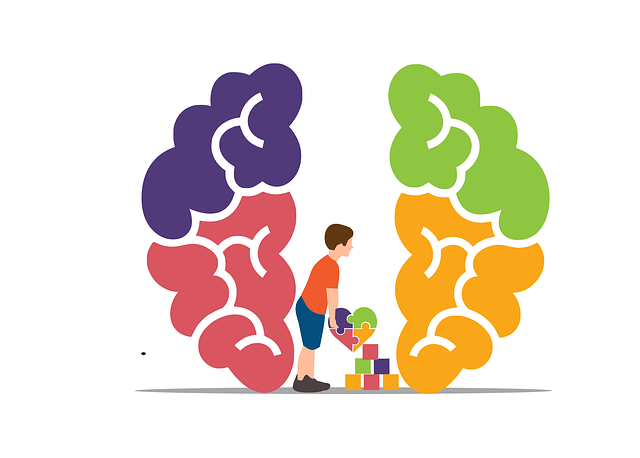Cultural competency in healthcare, crucial for today's diverse society, enhances patient outcomes and satisfaction by empowering providers to understand and interact effectively with patients from various cultural backgrounds. Broomfield Exposure and Response Prevention (BERT) therapy is a culturally sensitive approach that tailors mental health interventions, improving diagnosis accuracy and patient engagement. This personalized care promotes inner strength development, depression prevention, and community well-being. Effective training programs, including mindfulness and crisis intervention guidance, equip healthcare professionals with the skills to deliver compassionate and culturally sensitive care using techniques like BERT.
Cultural competency in healthcare is no longer a nice-to-have, but an essential requirement. This article explores the critical role of cultural competency training for healthcare providers, delving into its impact on patient outcomes and experiences. We present a case study highlighting the effectiveness of Broomfield Exposure and Response Prevention Therapy in fostering cultural sensitivity. Additionally, practical strategies are offered to implement effective training programs, ensuring healthcare providers are equipped to deliver culturally competent care.
- Understanding Cultural Competency in Healthcare: Why It Matters and Its Impact
- Broomfield Exposure and Response Prevention Therapy: A Case Study for Cultural Sensitivity
- Implementing Effective Training Programs: Strategies for Healthcare Providers
Understanding Cultural Competency in Healthcare: Why It Matters and Its Impact

Cultural competency in healthcare refers to the ability of providers to understand, appreciate, and effectively interact with patients from diverse cultural backgrounds. This goes beyond mere awareness; it involves recognizing and respecting differences in values, beliefs, practices, and communication styles. In today’s diverse society, where patients come from various ethnic, racial, and cultural groups, this competency is not just a moral imperative but a necessity for quality care.
A culturally competent healthcare system significantly impacts patient outcomes, satisfaction, and adherence to treatment plans. For instance, research has shown that when healthcare providers are trained in cultural competency, they can improve diagnosis accuracy, enhance patient engagement, and foster a sense of trust and respect. This is particularly relevant in cases like Broomfield Exposure and Response Prevention Therapy (BERT), where understanding a patient’s cultural context can tailor mental health interventions for better results. Moreover, promoting inner strength development and depression prevention through culturally sensitive approaches can significantly contribute to the broader goal of Mental Health Awareness and overall community well-being.
Broomfield Exposure and Response Prevention Therapy: A Case Study for Cultural Sensitivity

Broomfield Exposure and Response Prevention (ERP) Therapy is a powerful approach that demonstrates the importance of cultural sensitivity in healthcare. This method involves gradually exposing individuals to traumatic or stressful situations, helping them learn new coping strategies and change their response patterns. When tailored to address cultural nuances, ERP therapy can be incredibly effective for diverse patient populations.
By incorporating self-care practices and positive thinking techniques, healthcare providers using this model empower patients to navigate challenging scenarios with resilience. Moreover, it fosters conflict resolution skills, enabling individuals to manage potential misunderstandings or tensions arising from cultural differences. This case study illustrates how a culturally sensitive approach can revolutionize therapy, ensuring that every patient receives personalized care that respects their unique background and promotes healing.
Implementing Effective Training Programs: Strategies for Healthcare Providers

Implementing effective training programs for healthcare providers is essential to ensure quality patient care and satisfaction. One proven strategy is incorporating cultural competency education, which equips professionals to navigate diverse patient backgrounds and needs. This involves learning about different cultural beliefs, values, and communication styles, fostering an inclusive environment. For instance, Broomfield Exposure and Response Prevention Therapy (Broomfield ERPT) techniques can be integrated into training to help providers manage challenging situations with culturally sensitive approaches. By exposing trainees to realistic scenarios and teaching them coping mechanisms, this method enhances their ability to respond calmly under pressure.
Additionally, incorporating practices like Mindfulness Meditation and Crisis Intervention Guidance can further benefit healthcare workers. Mindfulness training promotes positive thinking and emotional regulation, reducing stress levels. Crisis intervention guidance equips providers with tools to assess and de-escalate crises, ensuring patient safety and well-being. These strategies collectively contribute to a competent and resilient healthcare workforce, capable of delivering compassionate and culturally sensitive care.
Cultural competency training is a game-changer in healthcare, fostering better patient care and outcomes. As highlighted by the case study on Broomfield Exposure and Response Prevention Therapy, understanding cultural nuances can lead to more sensitive and effective treatment approaches. By implementing comprehensive training programs that incorporate strategies like role-playing and diverse scenario simulations, healthcare providers can enhance their ability to navigate complex cultural interactions. This, in turn, creates a more inclusive environment, ensuring every patient receives respectful and personalized care.














